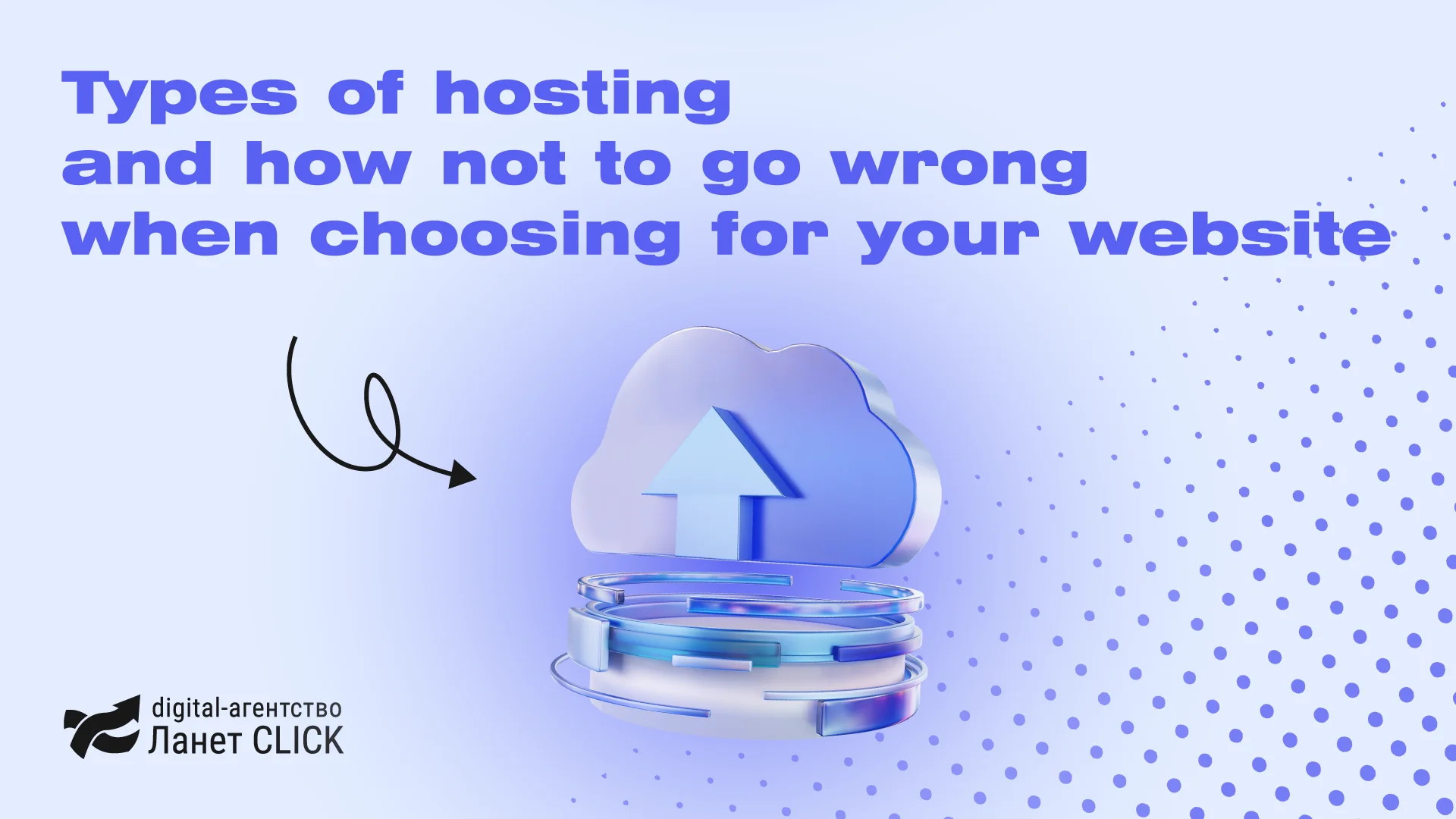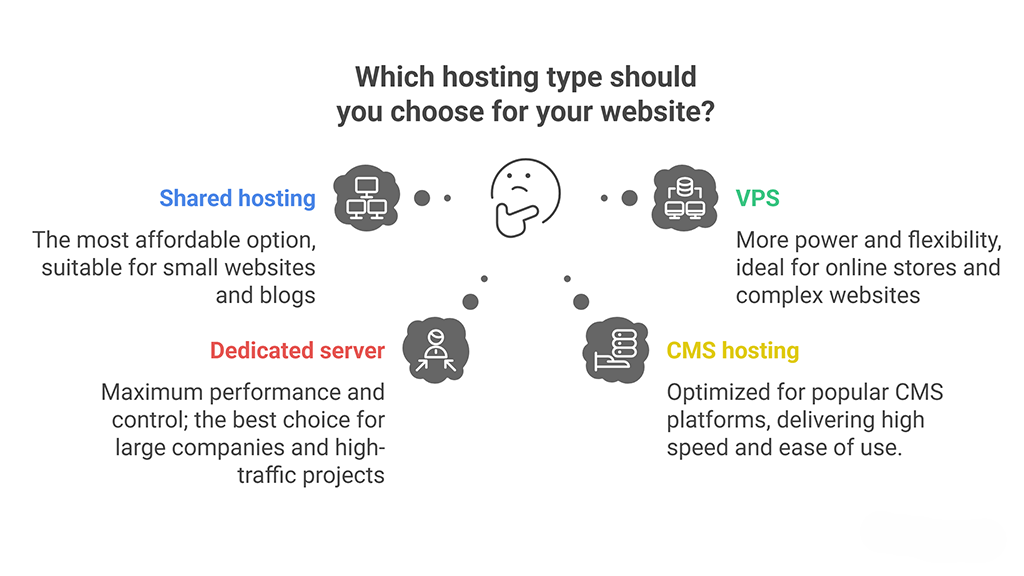
How to set up targeted advertising on Instagram
Instagram is one of the key advertising channels for business, which allows you to quickly attract customers, increase brand awareness, […]


Successful website operation starts not with design or content, but with choosing a hosting. It is the technical foundation that determines how quickly your site will load, how stable it will be, and how easily it can scale in the future. Choosing hosting randomly is like building a house without a foundation. In this material, the specialists of the hosting provider Cityhost.ua will examine the main types of hosting and give practical advice on how to choose the optimal option for your project.
There are not many types of hosting, but the differences between them are fundamental. To avoid making a mistake at the start, you should understand how each format works. Below is an overview of all the main options available on the modern market.

To choose hosting that will truly meet your needs, you need to evaluate your project based on several criteria: website complexity, expected load, technical resources, and your experience in administration. If you make a mistake in assessing even one of these factors, the website may work slowly, be unstable, or turn out to be excessively expensive to maintain.
Based on these criteria, you can already choose the suitable type of hosting. To help you navigate, below are typical examples of projects and hosting solutions that are ideal for them.
Another tip – pay attention to the possibility of quick upgrades. If the chosen hosting allows you to easily change the plan or switch to another type, it guarantees that you can adapt the infrastructure to your business growth.
Even the most experienced users sometimes choose hosting irrationally. As a result, they encounter problems only after the website is launched. To avoid wasting time and money, you should know in advance which mistakes to avoid.

The most common mistakes when choosing a hosting:
Avoiding these mistakes is not difficult – just read the specifications, ask questions, and don’t rush your decision.
To make your hosting choice not spontaneous but well-founded, follow a few simple principles. They will help you not only save money but also preserve your nerves, time, and reputation.
Key tips for choosing hosting for a website:
By choosing hosting thoughtfully, you get a technical foundation you can trust. And that is the key to the stability and growth of your online project.
Hosting is the foundation of your website. User experience, search rankings, and even revenue depend on its stability and performance. That’s why it’s important not to just pick the first option you come across, but to approach the choice with understanding. The right hosting meets your needs today and allows easy scalability tomorrow.

Instagram is one of the key advertising channels for business, which allows you to quickly attract customers, increase brand awareness, […]

2026 will be an important stage of change in the development of SMM, which will gradually begin to move to […]

Lanet CLICK was included in the list of the best digital agencies in Ukraine according to the Ringostat 2025 rating […]
A good strategy, perfectly selected digital tools, and their effective application will allow the business to increase profits, grow the customer base, and form recognition and loyalty. Do you want something like that? Contact us.
You have taken the first step towards effective online marketing. Our managers will contact you and consult you soon.